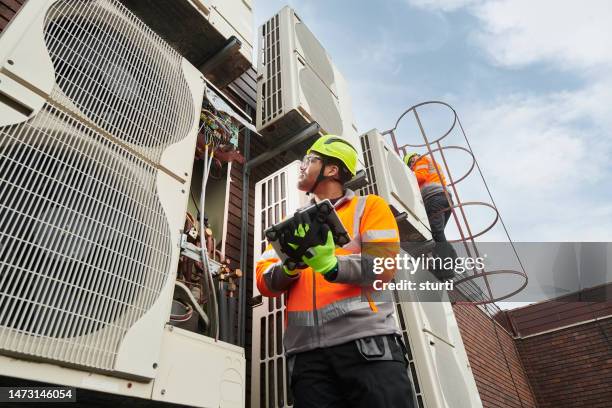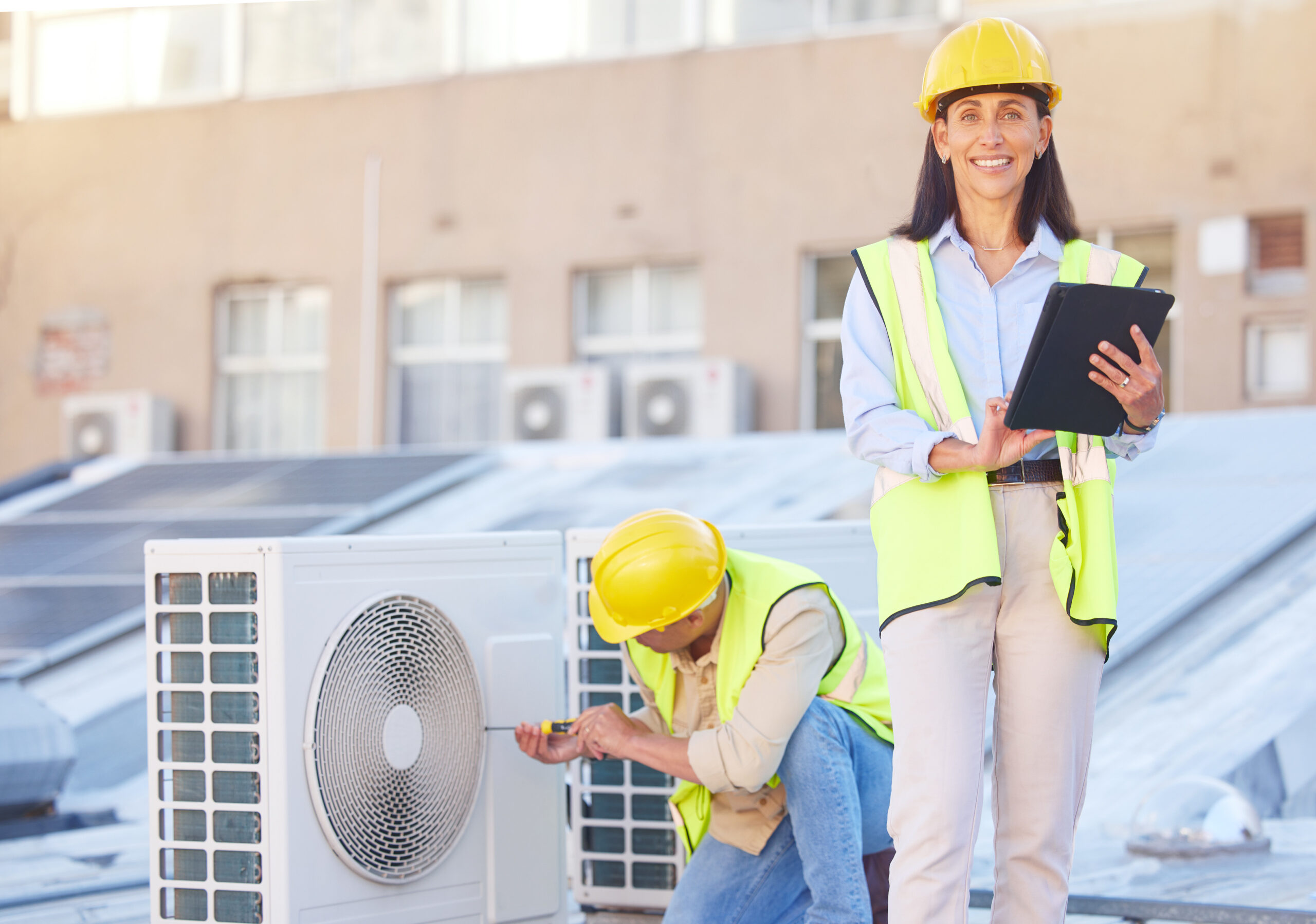When and Why to Schedule heat pump replacement ooltewah tn
When and Why to Schedule heat pump replacement ooltewah tn
Blog Article
Picking Between a Warmth Pump and Heater: Secret Factors To Consider for Your Heating And Cooling Needs
When evaluating heating options for cooling and heating requires, the choice in between a warmth pump and a heater can be complex. Each system supplies distinct advantages tailored to specific climates and energy efficiency objectives. Understanding these differences is necessary for making an informed option. Key aspects such as installment costs and environmental effect even more make complex the selection procedure. Which option truly lines up with one's convenience and sustainability preferences? The following areas will certainly explore these factors to consider carefully.
Understanding Warmth Pumps: Just How They Work and Their Benefits
While many homeowners take into consideration various heating options, recognizing exactly how heatpump feature and their benefits can considerably influence their choice. Heatpump run by moving warm instead of producing it. In the winter months, they extract warm from the outdoors air or ground and transfer it inside, while in the summer season, they reverse this procedure, cooling down the home by expelling heat outside. This double functionality makes them flexible for year-round environment control.One of the primary advantages of heatpump is their power effectiveness. They utilize significantly less electricity compared to typical furnace, possibly leading to lower energy bills (ductless mini splits). Additionally, warm pumps have a smaller sized carbon impact, making them an eco-friendly option. They additionally require much less maintenance than conventional systems, adding to lasting price savings. Generally, recognizing the mechanics and advantages of heatpump can help house owners make notified decisions concerning their home heating and cooling needs
Exploring Heaters: Types, Operation, and Advantages
Heating systems come in various types, including gas, electrical, and oil models, each with unique functional systems. Comprehending these differences is vital, as they impact effectiveness and heating performance. In addition, furnaces use numerous benefits, such as regular warmth result and reliability in colder climates.
Sorts of Furnaces
Heating unit can differ significantly in style and procedure, with heating systems being a prominent selection amongst homeowners. There are several types of furnaces, each utilizing different fuel sources and modern technologies. Gas heaters prevail, leveraging natural gas to create warm successfully. Electric heaters, on the other hand, make use of electric resistance to produce heat, commonly favored for their straightforward installment. Oil heating systems, while less common, are efficient in areas with minimal gas accessibility (heat pump installation ooltewah tn). In addition, condensing furnaces take full advantage of energy efficiency by recycling and recording exhaust gases. Each type operates through a system of heat exchangers and ductwork to disperse cozy air throughout a home. Comprehending the differences in between these furnace kinds is necessary for informed HVAC choices
Benefits of Furnaces
For homeowners looking for reputable heat throughout cold months, the advantages of heating systems are significant. Furnaces supply regular heating, making certain even temperatures throughout the home. They are specifically efficient in extreme cold, usually outperforming heat pumps in frigid problems. Numerous types, consisting of gas, electrical, and oil heaters, provide adaptability to meet varied requirements and preferences.Furnaces also have a tendency to have lower initial installation costs contrasted to heatpump, making them a more obtainable option for numerous. Their robust design contributes to a much longer lifespan, with several systems lasting over 15 years with correct upkeep. Additionally, contemporary heaters are frequently geared up with sophisticated technology for improved performance, which can result in reduced energy bills. In general, heating systems continue to be a reliable option for reliable home heating.

Power Efficiency: Contrasting Heat Pumps and Furnaces
When contrasting power efficiency between heatpump and furnaces, the Seasonal Power Efficiency Proportion (SEER) plays a necessary function in establishing performance. In addition, an operational expense evaluation reveals the lasting economic effects of each system. Recognizing these factors can direct homeowners in making educated decisions about their home heating options.
Seasonal Energy Performance Proportion
Energy efficiency plays an essential role in the decision-making procedure in between heatpump and heaters, especially when thinking about the Seasonal Energy Effectiveness Ratio (SEER) This statistics steps the cooling efficiency of heatpump over a whole cooling season, offering a standard way to assess efficiency. Higher SEER ratings indicate better power efficiency, converting to lower energy consumption and decreased utility bills. On the other hand, furnaces are typically assessed making use of the Annual Gas Usage Performance (AFUE) ranking, which shows heating efficiency. When contrasting these 2 systems, house owners must prioritize SEER ratings for warmth pumps, as they directly influence general power savings and ecological sustainability. A complete understanding of SEER can significantly affect the lasting complete satisfaction and cost-effectiveness of the selected a/c service.
Operational Price Analysis
Comprehending the functional costs connected with warmth pumps and heating systems is important for homeowners assessing their options. Heat pumps generally offer higher energy performance, transforming electrical energy into heat with marginal waste. This causes lower regular monthly energy bills, specifically in moderate climates. Conversely, standard heaters, particularly gas designs, may have reduced ahead of time expenses however can incur greater operational expenditures in time because of sustain prices and performance ratings.Moreover, warm pumps can operate as both heating and cooling down systems, potentially minimizing the requirement for separate heating and cooling devices. While initial financial investments for heat pumps may be greater, their long-term savings in energy efficiency can make them an extra affordable option for many houses. Cautious analysis of neighborhood power prices is vital to establish the most effective alternative.
Installment Expenses: What to Expect for Each Heating Unit
Setup expenses for home heating systems can vary considerably in between heatpump and heaters, affecting home owners' choices. Heatpump normally have higher in advance installment expenses, generally varying from $3,500 to $8,000, relying on the unit dimension and complexity of installment. This includes the outdoor unit, indoor handling system, and needed ductwork alterations. Conversely, furnaces have a tendency to have reduced Go Here initial costs, balancing between $2,500 and $6,000, which can be appealing for budget-conscious property owners. Nonetheless, installment expenditures can enhance if substantial ductwork is required.Moreover, the option of gas kind for heaters-- all-natural gas, gas, or electric-- can additionally influence setup prices. While heat pumps supply power efficiency, their first investment may prevent some purchasers. Ultimately, reviewing setup costs together with long-term cost savings and efficiency will assist home owners in making informed decisions regarding their heating systems.
Environment Factors To Consider: Which System Does Better in Your Location
How do environment problems influence the performance of furnace? The efficiency of heat pumps and furnaces can vary considerably depending upon the regional climate. In modest climates, warmth pumps excel by effectively moving heat from the outdoors air, making them an energy-saving alternative. However, their performance diminishes in very cool temperatures, where they may battle to extract adequate warm. Alternatively, furnaces, specifically gas designs, provide consistent and trustworthy heat regardless of outside conditions, making them more suitable in chillier regions.In areas that experience milder wintertimes, heatpump can run effectively year-round, offering both heating and cooling. In contrast, regions with severe wintertimes usually gain from the robustness of furnaces. Eventually, comprehending the neighborhood environment is important when determining between a warm pump and a heater, as it straight influences their operational efficiency and overall performance.
Maintenance Requirements: Long-Term Take Care Of Warmth Pumps vs. Furnaces
While both heatpump and furnaces call for regular upkeep to guarantee peak efficiency, their particular needs and treatment routines differ substantially. Heating systems generally require less constant attention, with annual inspections being enough to look for gas leaks, clean filters, and evaluate try this web-site total performance. Their less complex style often enables straightforward repairs.In comparison, heatpump demand biannual upkeep due to their double duty in home heating and air conditioning. This includes cleansing coils, examining refrigerant levels, and making certain that both the outdoor and indoor devices function at their best. In addition, heat pump maintenance frequently includes more elaborate elements, making professional servicing essential.Neglecting upkeep can bring about decreased effectiveness and increased energy expenses for both systems. Inevitably, property owners need to think about these long-term care demands when choosing between a heatpump and a heating system, as proactive upkeep can extend the life expectancy and efficiency of either system substantially.
Ecological Impact: Choosing a Sustainable Heating Option
The environmental impact of heating systems is a crucial assessment for home owners seeking sustainable alternatives. Heat pumps are normally extra energy-efficient than traditional heating systems, as they transfer heat as opposed to produce it, substantially lowering carbon exhausts. By making use of renewable resource resources, such as air-source or geothermal heatpump, property owners can even more minimize their environmental footprint.On the various other hand, all-natural gas heating systems discharge greenhouse gases and add to air pollution, though they frequently offer higher warmth outcome. Advancements in modern technology have actually led to the advancement of high-efficiency furnaces that minimize emissions.Ultimately, selecting a heating system involves evaluating efficiency versus ecological influence. House owners are encouraged to assess regional power sources and motivations for renewable systems, making certain an option that straightens with both personal convenience and ecological obligation. The choice affects not just prompt convenience yet additionally long-lasting sustainability and ecological health.
Regularly Asked Questions
How Much Time Do Warm Pumps and Furnaces Generally Last?
The life-span of heat pumps commonly ranges from read this article 15 to twenty years, while furnaces can last between 15 to three decades. Regular upkeep considerably impacts their longevity and effectiveness in giving home heating remedies.
Can I Use a Heatpump in Exceptionally Cold Climates?
Heatpump can operate in very cool environments, yet their efficiency decreases as temperature levels decline. In such problems, additional home heating sources might be essential to maintain comfortable indoor temperature levels and guarantee peak efficiency.

What Is the Noise Level of Warmth Pumps Versus Furnaces?
The sound levels of heat pumps and heaters differ substantially. Typically, warm pumps run even more silently than standard heating systems, making them more suitable for those conscious seem, while furnaces might produce louder functional noises throughout heating cycles.
Are Warm Pumps Suitable for Both Heating and Air conditioning?
Heat pumps are certainly suitable for both cooling and heating (ductless mini splits). They operate by transferring warmth, offering reliable temperature control year-round, making them a functional choice for home owners seeking an all-in-one cooling and heating option
What Dimension Heater Do I Required for My Home?
Establishing the ideal size home heating system for a home requires examining elements such as square video footage, insulation top quality, local climate, and the home's format. Consulting an expert can ensure an exact assessment and suitable convenience. Heat pumps commonly offer higher power performance, converting electric energy right into heat with minimal waste. In modest climates, warmth pumps stand out by successfully moving heat from the outside air, making them an energy-saving option. Alternatively, furnaces, particularly gas models, supply constant and trusted heat regardless of outside problems, making them preferable in chillier regions.In locations that experience milder winters, heat pumps can operate successfully year-round, giving both home heating and air conditioning. Warmth pumps are usually extra energy-efficient than typical heaters, as they move warmth instead than produce it, substantially reducing carbon emissions. By utilizing renewable energy sources, such as geothermal or air-source heat pumps, home owners can further decrease their eco-friendly footprint.On the various other hand, natural gas heating systems discharge greenhouse gases and add to air contamination, though they typically give higher heat outcome.
Report this page